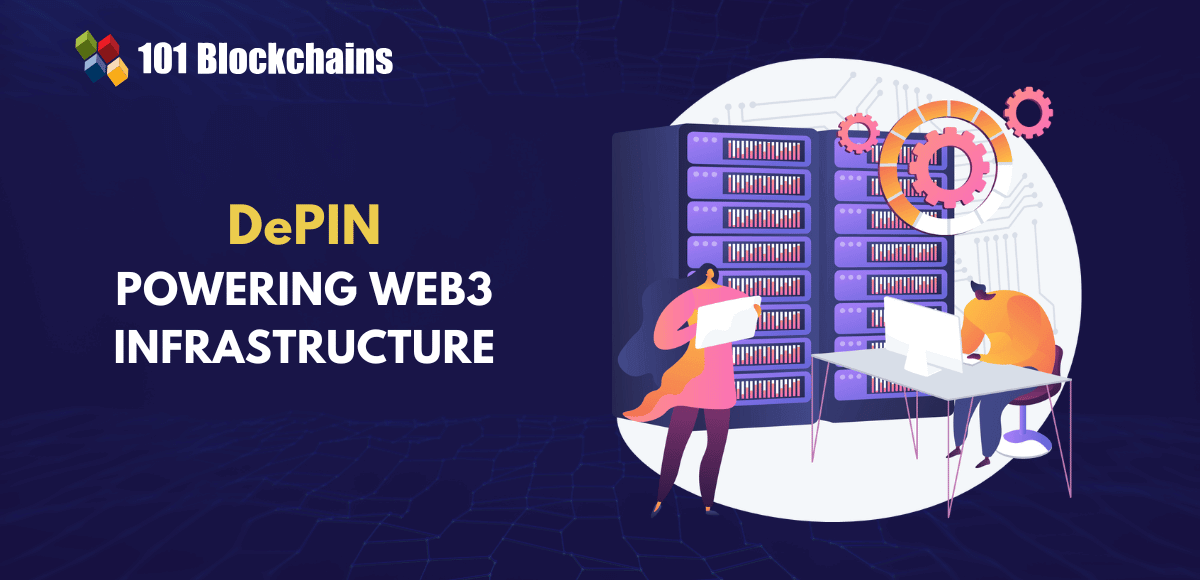Learn how blockchain truly works, master key definitions, and uncover what makes smart contracts so "smart." Dive into the fundamentals, gain valuable insights, and start your blockchain journey today!

- Web3
James Howell
- on June 22, 2022
Zero Knowledge Proof And Its Importance To Web3
The different stages in the evolution of the internet have introduced distinct improvements in user experience. For example, the earliest stages of the internet or web 1.0 included only static web pages which delivered information. On the contrary, discussions around technology have shifted towards topics like “what is zero knowledge proof” and their relevance for web 3.0. The world witnessed the transformation of the internet into web 2.0, with social media sites taking the front seat. Now, the emphasis of internet services focused more on allowing users to create content, which defines the growth of user-generated content.
Today, the arrival of web 3.0 signifies the onset of a more decentralized web. At the same time, it is also important to wonder whether web 3.0 actually solves all the problems it was intended to. The following post reflects on the importance of zero knowledge proof for web3 and the ways in which they draw value towards the next generation of web solutions and services. You can learn about the working of zero knowledge proofs and their distinct traits alongside the use cases of ZKPs for web3.
Excited to learn the the core concepts of zero-knowledge proofs? Enroll Now in Zero Knowledge Proofs (ZKP) Masterclass!
Understanding the Background of Web3
Prior to the search for “why zero knowledge proof is important to web3”, it is important to understand the background of web3. What was the need for introducing web3 in the first place? You can find an ideal answer in the most critical theme for the web2 landscape, i.e., data. The concept of user-generated content has contributed to considerable improvements in user experience with web2 solutions.
However, data turns out to be the most important commodity in this phase of the internet. Users have to provide personal information in return for access to online services. In addition, the numerous instances of attacks on personal data of users show that personal information of users is never completely safe.
Web3 arrived with the crucial value advantages of sovereignty, immutability, and decentralization. Did it succeed in solving the problem of data integrity? No. As a matter of fact, the issue of compromises in personal information has evolved into a more dominant force with web3. You can discover the importance of ZKP for web3 in the instances of data compromises in blockchain networks. The root of all problems is data. Therefore, it is important to look for a solution that can help in creating an invisible flow of data throughout the internet to prevent data breaches.
The Necessity of Zero Knowledge Proofs in Web3
The first thing on your mind while seeking answers for “what is zero knowledge proof” and how to use it in web3 would focus on why they are important for web3. Zero knowledge proofs or ZKPs provide the assurance of an invisible data flow. The significance of ZKPs for web3 is evident in need for immersive experiences in web3 alongside the improvements over previous versions of the internet.
Web3 implies the necessity of introducing improvements over the previous version of the internet and would invite more users. At the same time, web3 can also open up the scope for access to additional functionalities on the internet. As more and more users join the web3 revolution, malicious agents would find more points for data vulnerability.
Will users accept web3 if they find that the solutions put their personal data at risk? This is where you can identify the importance of zero knowledge proof for web3 and its future. Zero knowledge proof or ZKP serves as a cryptographic tool that helps two different parties in exchanging information without revealing anything. For example, you don’t have to use your password to access your mail. Well, how can that be possible? After all, passwords and user identification credentials are significant elements in the foundation of internet security.
Zero knowledge proofs are necessary for the evolution of web3 as there is no way you can remove passwords out of the equation. The basic structure of the internet is like a gated community. You enter the key, i.e., password, and you gain access to the community, i.e., online service. The expansion of web2 led to improvements other than passwords, such as identities for verification. However, the information about the password is open to interception during transfer and can compromise the user’s account. Therefore, zero knowledge proofs or ZKPs offer the assurance of safeguards for user information.
Build your identity as a certified blockchain expert with 101 Blockchains’ Blockchain Certifications designed to provide enhanced career prospects.
Working of Zero Knowledge Proofs
The answers to “why zero knowledge proof is important to web3” become clear with an understanding of how ZKPs work. The basic design of ZKPs suggests that they are cryptographic tools and are completely mathematical in nature. You can understand the working of zero knowledge proofs by reflecting on a common example of access to internet services. If you provide your passport number for booking a ticket through online services, you are putting your personal information, such as age and home address, at risk.
In the case of zero knowledge proofs, you can ensure safety for a prover, even in scenarios where the verifier is not trustworthy. How can you learn about the importance of ZKP for web3 without any idea about their working mechanism? The example of a bank can help you understand how ZKPs are necessary for web3. Banks take personal details from users to provide their credit scores. Rather than providing your personal information, such as your social security number, to the bank, you can use your name. Even if the process appears simple, it involves reliable value advantages for web3.
How effective is ZKP for Web3?
The specific traits of zero knowledge proofs can help you find out their importance for web3. You must follow certain important parameters in the design of a ZKP.
-
Soundness
The most crucial aspect in verifying what is zero knowledge proof for web 3.0 is the soundness trait of ZKPs. For example, if a statement is false, then the verifier could not be convinced in any other way.
-
Completeness
The completeness trait also ensures that limited parties take part in any process. It implies that all the involved parties must follow due diligence. As a result, the honest verifier can authenticate data without any external assistance.
-
Zero Knowledge
In the event of a true statement, the verifier cannot access any other information beyond the fact that the prover has offered a true statement. The verifier can request statements from the prover, and the probabilistic nature implies that the verifier must be convinced with their information.
Curious to develop an in-depth understanding of web3 application architecture? Enroll Now in Web3 Application Development Course!
Uses of Zero Knowledge Proofs for Web3
Zero knowledge proofs or ZKPs offer a diverse variety of use cases for the web3 world. The use cases of zero knowledge proof for web3 include authentication, blockchain technologies, and IoT applications in the web3 world. Here is an overview of the uses of ZKPs in the web3 sector.
-
Blockchain
Blockchain technologies promise the assurance of decentralization and immutability, albeit with compromises in data privacy. The facility of audit trails and transparency of transactions on blockchain networks pointed out the concerns of limited privacy on blockchain.
It is important to remember that blockchain technology is one of the core elements of the web3 landscape. Therefore, the importance of ZKP for web3 is evident in the way they transform the benchmarks of privacy on blockchain. For example, the cryptocurrency Zcash leverages zk-SNARK cryptography.
The other popular use cases of ZKPs for blockchain refer to the layer 2 zk-Rollups. Zk-SNARKs help in validation while ensuring complete encryption of information and revealing the information required for validity only. If you look closely, ZKPs were developed primarily for authentication purposes.
ZKPs can achieve promising value advantages for data security in web3 through different methods. For example, ZKPs can convert transactions into expression transactions or arithmetic circuits. Other methods such as elliptic curve pairings alongside homomorphic encryptions can also help in evaluation of underlying polynomials without revealing any other information.
-
Internet of Things
The relevance of ‘what is zero knowledge proof’ for the evolution of web3 is also evident in the growing use of IoT. Internet of Things is gradually gaining dominance over the world and serves the important roles of connectivity and synchronization. At the same time, you cannot undermine the vulnerability spot for IoT in cloud storage. In the case of sensitive systems such as IoT, zero knowledge proofs can help in delivering seamless information flow without any breaches.
Want to understand the fundamentals of the Internet of Things (IoT)? Enroll Now in IoT Fundamentals Course!
Bottom Line
The different implications pertaining to importance of ZKP for web3 show that privacy is no more a privilege; it is a necessity now. As the number of users in web3 grows by a huge margin, the ideal tools for preserving data integrity become more important. Zero knowledge proofs not only help in ensuring data anonymity but also favorable outcomes for user privacy.
As of now, the popular examples of zero knowledge proofs on web3 point to how they can safeguard blockchain networks. On the other hand, it is important to look for new ways to use zero knowledge proofs in other areas of web3. Explore and start learning about web3 and ZKPs with credible blockchain training resources now.
*Disclaimer: The article should not be taken as, and is not intended to provide any investment advice. Claims made in this article do not constitute investment advice and should not be taken as such. 101 Blockchains shall not be responsible for any loss sustained by any person who relies on this article. Do your own research!







